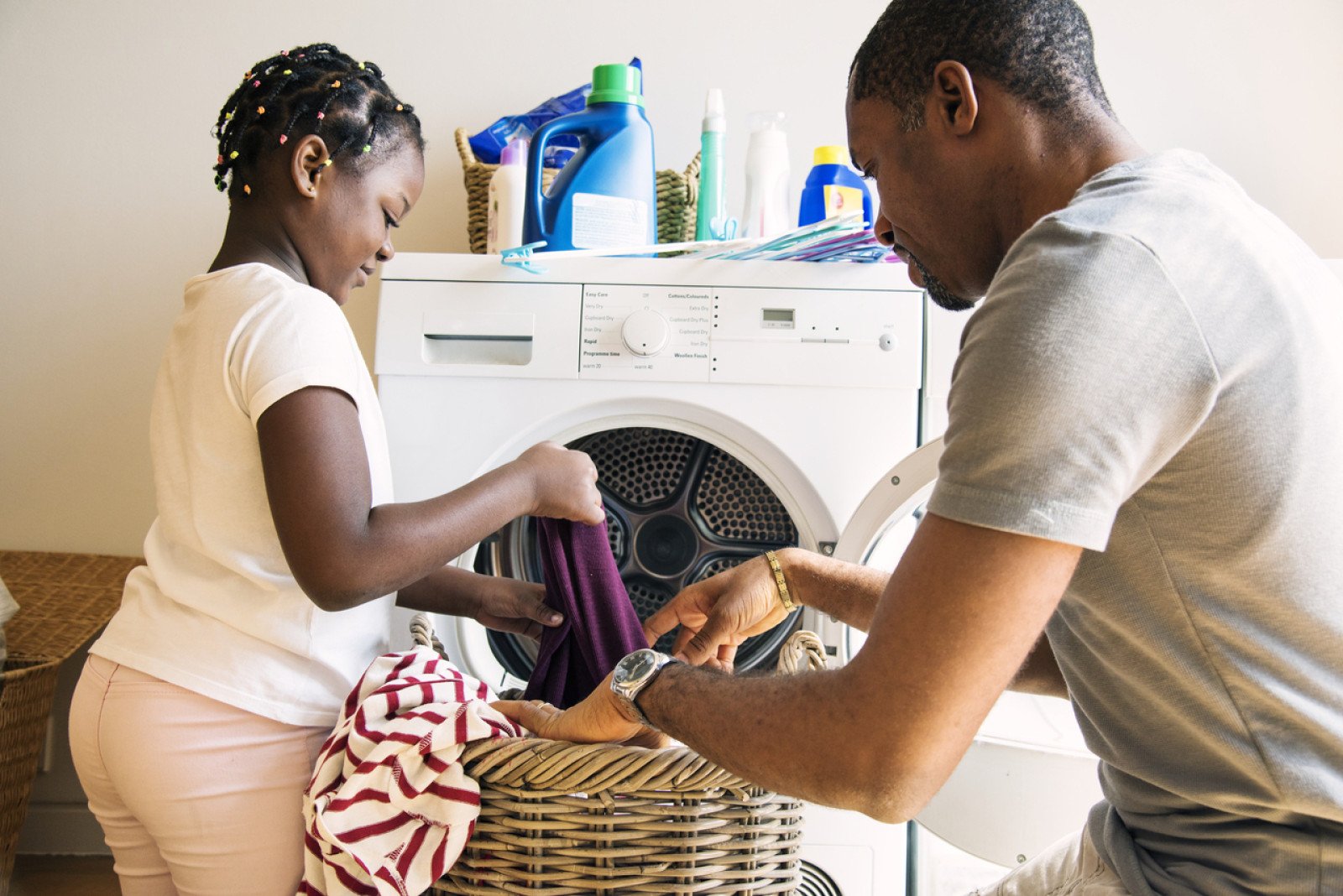Energy-saving slogans
Explore how to save energy when using appliances, and create magnets with conservation messages.

Overview
In this activity, students learn tips about saving energy with our home appliances by creating energy-savings slogans and making magnets.
Instructions
What you'll need
- "Energy-saving slogans" student handout (print one copy per 2 students and cut in half)
- "Energy-saving slogans" teacher answer key
- "T-shirt" template example
- Scissors, pencils, crayons or markers per student, or group of students
- Magnetic tape (about a 2 cm piece per student) - optional
- Explain to your students that we'll be learning about how to save energy when using various appliances. Start by brainstorming the types of appliances we might use day to day like fridges, clothes washers and dryers, and dishwashers. Not everyone has these appliances at home; discuss other ways we might wash dishes or do laundry without these appliances in our homes. Consider ways without using energy like hanging our clothes to dry or hand washing clothes in cold water.
- Ask your students to list reasons why saving energy is important. For example, it's good for the environment.
- Hand out the "Energy-saving slogans" student handout, one per student. Explain that an appliance shop wants to create t-shirts for their staff with slogans about saving energy. By choosing a word from the list below have students fill in the missing word.
- Alternatively, students can write down 1 to 8 the missing words in their correct order.
- Pull up the "Energy-saving slogans" teacher answer key and have students share their answers and any additional energy-saving information about our appliances.
- Show students the "T-shirt" template example. Explain that we will be creating t-shirt images with a slogan to put on our fridge, dishwasher clothes washer or dryer at home to remind us to save energy.
- Ask students to turn over the "Energy-saving slogans" student handout and use the other side to draw their t-shirt image. Have students design their t-shirts by decorating and adding an energy-saving slogan by creating their own or choosing one from our list. Students can choose or create a slogan for an appliance they have in their home. Once complete, have students cut out the t-shirt image, and attach the magnetic tape to the back.
- Alternatively, students could use tape or a fridge magnet they have at home.
- Ask students to take home their creations and attach them to an appliance as a reminder to save energy.
- Remember to recycle any paper from the activity.
Modify or extend this activity
Extensions
- Challenge students to get appliance smart by helping their families do laundry this week. Remember the energy-saving tips like using cold water instead of hot and having a full load. Students can help either at home or at the laundromat. For an extra bonus challenge, ask students to hang their clothes to dry rather than using the dryer.
Modifications
- Students can participate in these activities in school or at home. Students at home who do not have access to a printer, can participate in the t-shirt slogan activity by writing down from 1 to 8 the missing words in their correct order.
Curriculum Fit
Core competencies
Communications
- Acquiring and presenting information
Thinking
- Creating thinking: Creating and innovating
- Critical thinking: Designing and developing
Personal and social
- Personal awareness and responsibility: Self-regulating
- Social awareness and responsibility: Contributing to community and caring for the environment
The activities also connect to a variety of grade-specific curricular competencies and content in a variety of subjects including Science, Applied Design, Skills and Technologies, English Language Arts, and Arts Education.
Assessments
- Assess students’ ability to share ideas pre and post the “Energy-saving slogan” missing word activity.
- Assess students’ ability to work independently; designing, creating and presenting information.
- Assess students’ understanding of ways to save energy with our appliances, and why saving energy is important.
Teaching Notes
Appliances
Appliances can consume a lot of energy but there are smart behaviour changes we can make to save energy. The following are some tips and background information.
- Check if your appliances have any energy-saving modes or settings you can use.
- Help your appliances last longer and run more efficiently by regularly cleaning them.
Fridge
- To use the optimum amount of energy, set your fridge temperature to 2-3 degrees Celsius and your freezer to -18 degrees Celsius.
- An empty fridge uses more energy than a full one. If your fridge is empty put a jug of water in the fridge. This will save energy and keep your food cold longer in case of a power outage.
- 30% of the cold air escapes every time you open the fridge door. Consider what you need before opening the fridge door.
- Your fridge is the appliance that uses the most electricity in your home per year. If you have a second fridge that you don’t use, unplug it.
Clothes washer
- Try to run full loads of laundry, as a partial load uses the same amount of energy as a full load.
- Wash clothes when they’re actually dirty. If not, fold them and reuse another day.
- If possible, wash laundry using cold water as 90% of the energy used in a clothes washer goes towards heating the water. Clothes will also last longer since cold water is gentler on fabrics.
Clothes dryer
- The clothes dryer is the home appliance that uses the most energy per use.
- Hang clothes to dry to save energy either outdoors or inside using a drying rack.
- Drying one load of laundry immediately after another will save energy.
- Cleaning the lint filter each time before drying clothes will save energy and help your dryer last longer. Cleaning the lint filter also reduces the risk of fire.
Dishwasher
- Run the dishwasher when you have a full load. If you only have a few dishes hand washing is an option.
- Before putting dishes in the dishwasher wipe them with a cloth to remove scraps rather running them under hot water.
- Try opening the dishwasher door to let your dishes air dry without using electricity.
- If washing dishes by hand, wash them in a bowl of hot soapy water and rinse using cold water.
ENERGY STAR appliances
ENERGY STAR appliances can be more expensive to buy, but they save energy and money over their lifetime since they are more efficient than standard appliances. See Appliance rebates for more information on ENERGY STAR appliances and how to recycle your old appliance.
Young people can take action
A greater understanding of ways to save energy when using our appliances empowers students to practice energy conservation and care for their near environment. With your help, we can foster a culture of Power Smart youth in British Columbia together.








